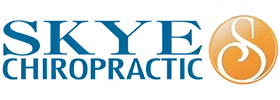Suffering From Scoliosis in Louisville KY?

Are you in search of top-notch chiropractic care specifically tailored for scoliosis in Louisville KY? Scoliosis often initiates as a minor curvature in the spine, gradually progressing over time. A formal diagnosis of scoliosis is typically made when the spine exhibits a curvature exceeding ten degrees to either side while facing the examiner. As scoliosis advances to more pronounced stages, it can lead to significant health complications.
Fortunately, early detection of spinal curvature coupled with proactive chiropractic intervention can prevent scoliosis from reaching debilitating levels. This article delves into the development of scoliosis and its implications for overall health. It also sheds light on the methods used to identify scoliosis and how specialized chiropractic care in Louisville KY can effectively reverse its effects, promoting a return to optimal health and well-being.
Causes Of Scoliosis in Louisville KY
Scoliosis can stem from various factors, both genetic and environmental, contributing to the abnormal curvature of the spine. While the precise cause of scoliosis remains unknown in many cases, several common factors are associated with its development. These causes include:
- Genetics: Scoliosis can run in families, suggesting a genetic predisposition to the condition. Individuals with family members affected by scoliosis are more likely to develop the condition themselves.
- Abnormal Bone Growth: Irregularities in bone growth, such as asymmetrical growth rates or abnormalities in the vertebrae, can contribute to the development of scoliosis. These anomalies can lead to the spine's curvature becoming misaligned over time.
- Neuromuscular Conditions: Certain neuromuscular conditions, such as cerebral palsy or muscular dystrophy, can impact muscle tone and control, leading to an uneven pull on the spine and resulting in scoliosis.
- Congenital Factors: Some cases of scoliosis are present at birth due to congenital spinal abnormalities, such as malformed vertebrae or incomplete spinal formation.
Identifying the underlying cause of scoliosis is crucial for determining the most effective treatment approach. While genetic factors play a significant role, environmental factors and spinal abnormalities also contribute to the development of this condition. Understanding these causes helps chiropractors develop personalized treatment plans to address the specific needs of each patient with scoliosis.
How is scoliosis diagnosed?
Diagnosing scoliosis involves a comprehensive assessment by a chiropractor, who is trained to identify spinal abnormalities and curvature. During the diagnostic process, the chiropractor employs various techniques to evaluate the spine's alignment and curvature, focusing on identifying signs of scoliosis. These diagnostic methods may include:
- Physical Examination: The chiropractor conducts a thorough physical examination, assessing the patient's posture, spinal alignment, and range of motion. They look for asymmetries in the shoulders, hips, rib cage, and spine, which can indicate scoliosis.
- Spinal Imaging: X-rays are commonly used to provide detailed images of the spine, allowing the chiropractor to measure the degree of curvature and assess the spinal structure. Advanced imaging techniques like MRI or CT scans may also be utilized for a more comprehensive evaluation.
- Cobb Angle Measurement: The Cobb angle is a key measurement used to diagnose scoliosis, indicating the degree of spinal curvature. Chiropractors use X-rays to measure the Cobb angle accurately, which helps determine the severity of scoliosis and guides treatment planning.
Once scoliosis is diagnosed, the chiropractor discusses the findings with the patient and develops a customized treatment plan.
Chiropractic Care Plan For Scoliosis in Louisville KY
Chiropractic treatment plans for scoliosis are personalized to each patient's unique condition, considering factors such as the degree of spinal curvature, age, overall health, and individual goals. The primary goal of chiropractic care for scoliosis is to slow down or halt the progression of spinal curvature, improve spinal alignment, reduce pain and discomfort, and enhance overall quality of life.
One of the key components of chiropractic treatment for scoliosis is spinal adjustments or manipulations. These adjustments involve gentle and specific manual manipulations by the chiropractor to correct spinal misalignments and improve overall spinal function. By restoring proper alignment and mobility to the spine, chiropractic adjustments can help reduce the progression of scoliosis and alleviate associated symptoms.
In addition to spinal adjustments, chiropractic treatment plans for scoliosis may include therapeutic exercises and stretches aimed at strengthening supporting muscles, improving posture, and enhancing spinal flexibility. These exercises are tailored to address the specific needs of the patient and may include core strengthening exercises, stretching routines, and postural correction techniques. Incorporating regular exercise into the treatment plan can contribute significantly to managing scoliosis and promoting spinal health.
What Happens When Scoliosis Goes Untreated?
If left unchecked or untreated, scoliosis can lead to various consequences that affect both physical health and overall well-being. One of the primary concerns is the progressive worsening of spinal curvature over time. As scoliosis advances, the degree of curvature increases, potentially causing significant deformity in the spine. This can lead to visible asymmetry in the shoulders, ribcage, and hips, impacting posture and overall body alignment.
Unchecked scoliosis can also result in spinal misalignments that put pressure on nerves and surrounding tissues, leading to chronic pain and discomfort. The spine's abnormal curvature may contribute to muscle imbalances and weakness, affecting mobility and flexibility. Over time, these issues can lead to reduced quality of life, limited range of motion, and difficulty performing daily activities.
Moreover, severe cases of untreated scoliosis can impact internal organs and respiratory function. As the spine continues to curve, it can compress organs within the chest and abdomen, potentially leading to breathing difficulties, digestive issues, and cardiovascular complications. Early detection and appropriate chiropractic intervention are crucial in managing scoliosis to prevent these potential consequences and promote optimal spinal health and function.
If you or someone you love has or suspects they have scoliosis call Skye Spine & Injury Center today.
OFFICE HOURS
Monday
8:00am - 6:00pm
Tuesday
8:00am - 6:00pm
Wednesday
8:00am - 6:00pm
Thursday
8:00am - 6:00pm
Friday
8:00am - 1:000pm
Saturday & Sunday
Closed
Skye Spine & Injury Center
2107 Weber Ave Ste. 101
Louisville, KY 40205



